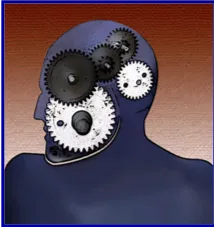Enneagram Personality Types - Learn about the Nine Enneagram Types
The Enneagram Personality Type System is one of the most comprehensive systems for self-awareness, personal growth and relationship mastery. It offers an in-depth understanding of what drives, motivates and challenges us. It also provides insight into relationships and how to bring out the best in those around us. The Enneagram is a roadmap to understanding human behavior and connecting with others both personally and professionally. Although we may have aspects of all 9 Enneagram personality types, we have one primary type or core type that is our home base. Discovering your personality type is a courageous and empowering personal growth journey.
Enneagram Types
Enneagram Type 1 IDEALIST
Idealist Strengths:
Ethical, idealistic, organized, committed, principled, noble, honest, methodical, diligent, moralistic, orderly, responsible

Idealist Challenges:
Inflexible, rigid, over-idealistic, “shoulds”, “oughts”, critical of self and others, self-righteous, cautious, contemptuous
Enneagram Type 1 At Their Best
Idealists strive for perfection. They believe they know what is truly correct and right and maintain a high level of honesty and integrity. They are known to be self-disciplined, organized, responsible, capable and dependable. They will stand up for what they believe is right in the world and support causes they feel are just, ethical and moral.
Idealists not only hold themselves accountable to high standards but hold others accountable as well. Idealists are motivated to be right and to teach others the “right way”. Criticism is not welcomed by Idealists, yet positive feedback is necessary. They like to know that their hard work to do things right is valued. Idealists will often work long hours planning step-by-step procedures to produce quality results. They are meticulous, orderly, detailed, organized, neat, proper, disciplined and committed.
What’s Challenging About Being Enneagram Type 1
Idealists tend to feel a moral duty to point out perceived errors, mistakes and things out of place. They have been known to come across as inflexible, controlling and over idealistic in their efforts to keep things on track. They are also known for using “shoulds” when working with others. It is common for those close to them to feel judged and criticized by their regular tally of right and wrong. Idealists think they are just doing the right thing by pointing out what to them is clearly wrong. Idealists have a strong inner critic that assists them in making certain everything measures up to flawless expectations. In fear of making a mistake and dealing with their own inner critic, Idealists become very methodical, procrastinating, cautious and concerned with clear accountability.
-
What an Idealist Might Say?
-
What's the correct way to do this?
-
Is this an ethical decision?
-
Who is responsible for getting this done?
-
Is this the best it can be?
Personal Growth for Enneagram Type 1
Cultivate the awareness that there is more than just one ‘right' way and learn to accept others.
Enneagram Type 2 PROMOTER
Promoter Strengths
Supportive, affective, people-oriented, intuitive, helpful, determined, competitive, appreciative, generous, friendly, social, kind, empowering

Promoter Challenges
Overly involved, demanding, possessive, martyr, codependency, low self-worth
Enneagram Type 2 At Their Best
Promoters are natural socializers and have excellent people skills. They generally have lots of friends and close relationships, and they like people to like them. They give compliments easily and place a high priority on friendships. They have genuine motivations to help in the best way possible. Promoters are kind, considerate, warm, empathetic and they listen to others from the heart. They maintain a great capacity for helping people and are always available and ready to drop whatever they are doing and come to the aid of others.
Being generous and going out of their way for others makes Promoters feel that theirs is the richest and most meaningful way to live. They are most interested and motivated in what they feel to be the good things in life—love, closeness, sharing, family, and friendship. Promoters are often known as the “information pipeline” within social circles, families, communities and organizations as they view gathering information as an important role. They will go out of their way to listen to and comfort others in need.
What’s Challenging About Being Enneagram Type 2
Promoters often feel like they care more than others do. They learned early in their lives that they felt better about themselves when they were tending to the needs of others, rather than their own. They want to be needed and need to be loved. They go out of their way to be helpful but when they are in need others tend to fall short. With their innate desire to help often comes the challenge to avoid being pushy, possessive, overzealous and over-influential in people's lives. Promoters are challenged by feeling disrespected leading to feeling angry, unappreciated and treated unfairly. They have reported finding themselves more concerned with another person's feelings than their own. Their challenge then is to stay in touch with their own boundaries, own needs, own desires, agendas, goals, plans and feelings, while still being inclusive of others.
-
What A Promoter Might Say?
-
Can I help you?
-
How will this affect everyone?
-
Does this reflect the interests of what people need and want?
-
Is everyone feeling valued and cared for?
-
Do you need a hug?
Personal Growth for Enneagram Type 2
The ability to assert their needs equally to the needs of others, cultivate self-worth
Enneagram Type 3 PERFORMER
Performer Strengths
Confident, competitive, results-oriented, focused, motivated, optimistic, persistent, enthusiastic, organized, responsible, successful

Performer Challenges
Workaholic, overly competitive, inauthentic, compromise quality for results, impatient with others
Enneagram Type 3 At Their Best
Performers are doers and have an inner drive towards achieving success. They are good at organizing projects and people. As well, they are good communicators and motivators of others. They tend to be strong goal setters and decision makers and are generally players rather than spectators. They are considered to be very practical decision makers focused on the bottom line.
Performers are motivated to win and be successful above all else. They give 110% effort to attain results. They have a natural sense of confidence and have been called the stars of the enneagram. They want to be liked and accepted by others, thus creating a positive image of themselves. They are one of the three heart types as part of their center of intelligence making relationships a core part their world. Of all 9 types, they believe most in themselves and in developing their talents and capabilities. They are confident, energetic, success oriented, optimistic and competitive.
What’s Challenging About Being Enneagram Type 3
Failure is the number one stressor for Performers. They will avoid failure at all costs. They are known for being overly competitive workaholics who are impatient with others slow pace. Their drive for success can lead to paying little attention to their own state of being or feelings. Their ability to take care of themselves emotionally along the way can often be put last on the continuum of importance.
Performers often find themselves needing to temper impatience with people who do not work at a fast “on the go” pace or who need time to speculate and discuss. They believe that feelings should be set aside until the job, task, or project gets done. In fact, performers desire to achieve can often appear machine-like and insensitive, as though people's feelings are being completely disregarded. Performers are challenged to avoid cutting the corners of ethics and quality, as their drive to meet objectives and get results can lead to pragmatic corner cutting.
-
What a Performer Might Say?
-
What's needed to meet this objective as quickly as possible?
-
What is the goal of this project?
-
How has this been done in the past?
-
I don't want to reinvent the wheel.
-
Ready! Fire! Aim!
-
Be the best that you can be.
Personal Growth for Enneagram Type 3
Emotional intelligence, authenticity
Enneagram Type 4 CREATOR
Creator Strengths
Creative, introspective, bold, original, sensitive, compassionate, unique, passionate, refined, direct, expressive, personable

Creator Challenges
Base decisions on mood, allow feelings to interfere with productivity and motivation, push-pull style of relating to others, unpredictable, bored with ordinary
Enneagram Type 4 At Their Best
Creators have good imaginations, notice details and appreciate beauty. They are highly introspective with a strong desire to understand themselves in relation to the world. They like to be unique and tend to dress and do things with flair and style. They have the ability to see hidden beauty in things, they seek new ways to express themselves and seek to understand their true authentic self. Creators are deep, soulful and passionate. They can make anything ordinary seem interesting.
Creators are motivated to appreciate themselves and to express their emotions. Of the nine personality types, type four is most aware of emotional pain and suffering in the world and in themselves. This makes them highly compassionate and empathetic. They enjoy creative endeavors and often see themselves as uniquely talented and possessing special one of a kind gifts. They love engaging in real conversations with emotional depth.
What’s Challenging About Being Enneagram Type 4
Creators find it challenging to not let their feelings influence their decisions, productivity, and motivation. Their tendency to relate to others in a push-pull fashion often makes it difficult for them in relationships. They are known to feel misunderstood, overly sensitive, unpredictable, melancholy and dramatic. They struggle to remain interested when their unique or special gifts are not validated or appreciated. This is especially true if they feel stuck in boring, unoriginal and shallow conversation, work and relationships.
What a Creator Might Say?
How can I accomplish this task in a way that has never been done before? How do people feel about the changes that are happening? We must pay special attention to maintaining the aesthetic nature of our work.
Personal Growth for Enneagram Type 4
Recognize similarities in self and others, genuine self-acceptance, be authentically seen and understood, I am more than how I feel
Enneagram Type 5 THINKER
Thinker Strengths
Wise, rational, analytical, thoughtful, self-starters, masters of information, respectful, privately passionate about ideas and concepts, perceptive

Thinker Challenges
Overly intellectual, disconnected, emotionally detached, prefer privacy, unavailable, unassertive
Enneagram Type 5 At Their Best
Thinkers are known to be analytical, logical, knowledgeable and insightful. They are highly independent and consider themselves to be very self-sufficient. They live in the world of their thoughts, value privacy and are emotionally reserved. They tend to observe and take in their surroundings rather than be at the center of the action. They are excellent systemizers of information and ideas. They easily impress others with their wealth of knowledge and wisdom. Reality for a Thinker is what is logical and measurable. They make clear decisions that are uninfluenced by their emotions.
They are motivated to know as much as possible. Reality for a Thinker is what is logical and measurable. They make clear decisions that are uninfluenced by their emotions. They will work hard for the rewards of privacy and the freedom to pursue their own personal interests.
What’s Challenging About Being Enneagram Type 5
They tend to be reluctant joiners who are not at ease in social situations preferring to observe rather than participate. Thinkers analytical and rational style of thinking may come across to others as disinterested or detached. Dealing with others emotions and feelings is not a preferred interaction by Thinkers, who like to keep everything related to thought and logic. Thinkers find it challenging to value ideas that aren't backed by solid facts, theory, research and analysis. Others can find them intellectually arrogant, emotionally withdrawn, unavailable and in their head. They live in a world of their thoughts and need a distraction free space in order to focus. Busy crowded environments tend to cause anxiety and tension leading to further withdraw and shutdown.
They will tend to avoid the emptiness and insecurity that comes with their perception of ignorance. They do not want to appear unintelligent. Thinkers have a sense of limited energy reserves, thereby wanting to maintain time and energy for their own agendas.
What a Thinker Might Say?
I will think about it and let you know. Give it some thought before you assume you know. I spent my summer vacation reading every book in the library. I don't know how I feel about my situation, but I can tell you what I think about it.
Personal Growth for Enneagram Type 5
Engagement, participation, emotional connection
Enneagram Type 6 LOYALIST
Loyalist Strengths
Dutiful, warm, trustworthy, respectful, prepared, collaborative, loyal, truthful, traditional, interactive, committed, team player, clever, funny, self-sacrificing, collaborative, relatable

Loyalist Challenges
Distrusting, suspicious, self-doubting, fearful, complaining, pessimistic, constant questioning
Enneagram Type 6 At Their Best
Loyalists have a strong sense of duty and they take rules and their responsibilities seriously. They are hardworking, dependable and reliable. They are true champions of their causes and are loyal and faithful friends. They seem to perform their best when under pressure and the odds are against a win. Loyalists are masters at defending the underdog. They are one of the three head types as part of the centers of intelligence making preparation a core part their world. Loyalists are motivated to feel safe and secure. In order to gain this feeling, they are willing to commit themselves to people, groups and organizations. Getting people to like and approve of them makes them feel reassured and safe. They are introspective and always aware of their anxieties. When they feel they have sufficient backup and trustworthy information they can move forward with some degree of confidence.
Phobic versus counter-phobic
There are two sides of the Enneagram type 6 continuum. On one side there is the phobic Loyalists who tend more to feel their fear. On the other side there is the counter-phobic Loyalists who tend more to confront their fear.
What’s Challenging About Being Enneagram Type 6
Loyalists don't like change and can become stressed over instability. They can be somewhat cautious, and they tend to worry that things might go wrong. They tend to be preoccupied with others authority and focus it in a way that they minimize or question their own authority. This can lead to challenges with authority figures. They tend to conform to the collective or group opinion and may not offer alternative solutions or new ideas as they don't want to take the risk of being alone with their idea. Accepting constructive feedback is also a challenge for Loyalists as they can be sensitive. They have a propensity to question and collect considerable data before trusting decisions about people and at times may appear doubtful, suspicious and distrustful. Others tend to find them pessimistic, worrisome and complaining. They struggle with insecurities, feel anxious, fear of rejection and avoidance. When stressed they can find themselves in constant need of reassurance.
What a Loyalist Might Say?
How is this decision upholding the traditions of our organization? It's a scary world out there, watch yourself. The glass is half-empty. I will support your cause, no matter what. It's not what you say that counts, it's what you don't say.
Personal Growth for Enneagram Type 6
Having trust in self and others, seek inner guidance
Enneagram Type 7 OPTIMIST
Optimist Strengths
Optimistic, enthusiastic, motivating, confident, effective planners, futuristic, spontaneous, out-going, funny, synthesizers, innovative
Optimist Challenges
Short attention span, follow-through, impulsive, lack of focus, avoid dealing with problems, self-centered

Enneagram Type 7 At Their Best
Continually on the lookout for fun and enjoyment, Optimists like to experience new things and new adventure. They usually have lots of friends and relationships and are good socializers. They like to be in constant motion and dislike being bored. They are generally enthusiastic ‘up' people who are good at seeing the possibilities in life. Others see them as fun, charming, spontaneous, outgoing and adventurous. Type sevens are the life of the party and make anything they do a joyful. They are considered to be a fun loving type that gets along with other types.
They can be influential and persuasive in order to get support from others and they do this through their enthusiasm, storytelling and emphasis on the possibilities of a given situation. As a result of their positive personalities, they are reported to be delightful to be around. Optimists have a strong inner sense of capability and high self-worth.
What’s Challenging About Being Enneagram Type 7
Optimists are motived to enjoy life and avoid pain. They feel uncomfortable controlling their desires and therefore tend to do as they please. They attempt to avoid feelings of anxiety by always being on the go. Optimists are great starters of projects, however, their drive for generating ideas and theory is often stronger than their drive to implement them. Following through with tasks, goals or projects is a common challenge. In the absence of this high energy, they can easily lose focus on their tasks and feel bored. They are known to double book in order to keep their options open. Their need for being center of attention and always “on” can be both a turn on and a turn off for others. Their positive self-image can at times be easily punctured by negative feedback. A type seven will tend to have commitment issues in their personal and professional life.
What an Optimist Might Say?
The annual meeting will be held at Disneyland this year. Look on the bright side, there's always tomorrow. The glass is half-full. I'm always game if it's going to be fun.
Personal Growth for Enneagram Type 7
Committing to just one course of action and seeing it through
Enneagram Type 8 ASSERTER
Asserter Strengths
Confident, outgoing, action-oriented, direct, leader, strong minded, high-energy, powerful, enforcers of justice, persuasive, responsible

Asserter Challenges
Overpowering, controlling, opposing, aggressive, too direct
Enneagram Type 8 At Their Best
Asserters tend to be self-determined and independent. They prefer to give rather than take orders, and whenever possible will take the lead. They tend to make quick “gut” decisions, and tell it the way they see it, often being direct and blunt. They are one of the three body types as part of their center of intelligence making action a core part their world. They can be highly confrontative and will fight for what they believe. They push themselves hard, are strong, formidable negotiators, and love to overcome challenges. They respect strength in others and are usually at ease in tough situations.
They need to be self-sufficient, so they can rely on their own resources rather than depend on other people. Challenging issues energize Asserters and will allow gut feelings to play an important role in making decisions. They like to be in control and calling the shots. Asserters have no hidden agenda and are reported to express their anger directly. In return they do not hold a grudge if anger is expressed back to them. They respect when others are up front and put it all on the table. It is not necessary to agree with their opinions, but you must make your views known. This constant reportage is critical to building trust with Asserters. Bad news can be handled, but no news creates distrust.
What’s Challenging About Being Enneagram Type 8
An Asserters desire to be in charge and in control of situations or projects may frequently conflict with another's viewpoints and concerns. They are known to be too direct, controlling and even aggressive to other types. Asserters need to be cautious of their tendency towards engaging in conflict for the sake of a good debate. They do not take defeat well and thus will tend to try to win at all costs. Their aggressive and direct style may at times minimize their credibility. An Asserters comfort with expressing anger openly makes them difficult to approach. A type eight will tend to avoid vulnerability, sensitivity and compassion in their relationships.
What an Asserter Might Say?
Who makes the decisions around here? I disagree whole-heartedly, it should be done like this. I make my own decisions. This person is being treated unfairly. My way or the highway.
Personal Growth for Enneagram Type 8
Implementing the appropriate use of power, cultivate sensitivity and vulnerability
Enneagram Type 9 MEDIATOR
Mediator Strengths
Harmonizing, generous, available, humble, open-minded, non-judgmental, receptive, empowering, peaceful, warm, flexible, unifying, diplomatic, patient, persevering
Mediator Challenges
Indecisive, too accommodating, stubborn, avoids conflict

Enneagram Type 9 At Their Best
Mediators are masters at diplomatic communication and creating harmony of opinion in the work environment. Their holistic style of thinking enables them to unify different parts of a whole and reduce the differences among people. Mediators are undemanding, cheerful, easy-going, gentle, and peaceful. They have a soothing and calming effect on others. Their ability to be open-minded and receptive to new ideas lends towards their ability to see all sides of a situation of almost any issue.
The Mediator is motivated to live in unity with others. They maintain a strong drive to maintain peace by keeping problems at a distance and letting others develop in their own ways. Recognition motivates a type nine to put effort into their work and experience a sense of satisfaction. People close to them feel genuinely accepted and understood. They tend to find others open up to them and share their personal struggles. Their nonjudgmental attitude makes them the perfect person to talk to. Peacemaker nines are genuine, down to earth and highly diplomatic.
What’s Challenging About Being Enneagram Type 9
Mediators tend to be too accommodating, appeasing and acquiescing to others. Their own opinions are often the last ones considered as they will easily put another's needs first to avoid potential conflict. They often feel invisible and try to go by unseen to avoid possible differences.
A Mediator's tendency to avoid confrontation and therefore accept circumstances as they are, makes it difficult for them to take their own personal stand on issues.
People in a close relationship with a Mediator don't always feel authentically supported because they don't tend to know how a Mediator truly feels. This is a common complaint in intimate relationships. On the flip side because Meditators avoid sharing their opinions, they may have a stack of unmet needs built up inside that become too high to hold. They tend to harbor resentments, dissatisfaction, passive aggressiveness and bitterness underneath their accepting exterior. They can let distractions and unessential details get in the way of completing goals and tasks given they struggle with prioritizing and indecision.
What a Mediator Might Say?
Let's just solve the problem and create peace again. What's the point of arguing? It feels good to be united. Learn to live with it. Don't rock the boat. Don't argue. Just don't do it. Live and let live.
Personal Growth for Enneagram Type 9
Stand up, engage, assert opinions openly
Three Centers of Intelligence
In addition to exploring the nine enneagram types with detailed descriptions above, the enneagram divides types into triads based on three centers of intelligence. The centers of intelligence represent how each of the nine types respond to stress and enacts their instinctual survival response to cope. The head centered enneagram types includes types 5, 6 and 7 where fear and anxiety are the primary emotional responses and preparation and planning are the actions to create security and safety. The body center includes types 8, 9, and 1 where anger is the primary emotional response and action is taken to maintain personal agency and autonomy. The heart center includes types 2, 3 and 4 where grief and shame are the primary emotions and maintaining relationships is the path to feel connected and safe.
The Enneagram has been one of the most influential tools we have come across in our personal and professional lives. There is not a day that goes by since learning about the Enneagram that we don't think of it in some way to help us better understand ourselves and others. In addition to our love for the Enneagram, we have found Brainspotting therapy, meditation and somatic practices to be remarkable tools for transformation and healing. We incorporate a combination of these methods in our personal and professional journey's.
About the Authors

Hilary Stokes Phd
Dr. Hilary Stokes is a licensed psychotherapist in private practice in San Diego, California. Dr. Hilary received her PhD in psychology with a specialty in transpersonal psychology from San Diego University for Integrative Studies, a master’s degree in social work from San Diego State University and a master’s degree in Sport Psychology from San Jose State University.
- Item
In addition to her private practice, she has experience working in integrative medical facilities such as the world-renowned healthcare facility Sanoviv Medical Institute, treatment centers for addictions and PTSD including Casa Palmera Treatment Center, psychiatric hospitals, schools and universities, correctional facilities, and business organizations.
Dr. Hilary specializes in a mind-body approach to healing trauma, anxiety, depression, grief, coping skills, self-esteem, addictions, eating disorders, relationship challenges, life transitions, purpose in life, and performance anxiety.
She has published several articles and co-authored two books, The Happy Map: Your roadmap to the habit of happiness and Manifesting Mindset: The 6-step formula for attracting your goals and dreams. She is currently furthering her knowledge and expertise in attachment focused EMDR and somatic therapy. In addition to a love of learning about neuroscience and mind body healing, Hilary can be found meditating, hiking, surfing, scuba diving, and spending time with her pets, family, and friends.
Companies and organizations we have worked with:
Presentations, Doris Howell Foundation, Institute of Functional Medicine, La Jolla Institute for Immunology, Nissan, Compass Real Estate Sharp Health Institute, Mattel, Usana Health Sciences, Youth and Family Assistance, MLK Family, Decorus, Odessy, Ariix, Casa Palmera Treatment Center, EVCI, Interboro, DEMA, GSDBA, LGBTQ Center San Diego
Websites and social featuring our publications:
- Mind Body Green
- Psych Central
- Cure Joy
- SD voyager

Kim Ward Phd
Dr. Kim Ward received her PhD in psychology with a specialty in transpersonal psychology from San Diego University for Integrative Studies. She also holds a master’s degree in transpersonal psychology from John F. Kennedy University in Orinda, California. Dr. Kim is a certified trauma-informed coach and life coach in private practice in San Diego, California.
- Item
In addition to her private practice, she has experience working in integrative medical facilities such as the world-renowned healthcare facility Sanoviv Medical Institute, treatment centers for addictions and PTSD including Casa Palmera Treatment Center, psychiatric hospitals, schools and universities, correctional facilities, and business organizations. Dr. Kim specializes in an integrative approach to dealing with trauma, anxiety, and depression, making peace with the past, transforming stress, healing relationships, living with purpose, and rewiring your brain for happiness.
She has been featured in several articles and co-authored two books, The Happy Map: Your roadmap to the habit of happiness and Manifesting Mindset: The 6-step formula for attracting your goals and dreams. Given the powerful healing experiences she witnesses with Brainspotting, she is presently advancing and deepening her skills in both Brainspotting and somatic therapy. Outside of her love for helping people, Kim has a passion for exercise, all animals, spending time in nature, meditating, and connecting with her family and friends.
Companies and organizations we have worked with:
Presentations, Doris Howell Foundation, Institute of Functional Medicine, La Jolla Institute for Immunology, Nissan, Compass Real Estate Sharp Health Institute, Mattel, Usana Health Sciences, Youth and Family Assistance, MLK Family, Decorus, Odessy, Ariix, Casa Palmera Treatment Center, EVCI, Interboro, DEMA, GSDBA, LGBTQ Center San Diego
Websites and social featuring our publications:
- Mind Body Green
- Psych Central
- Cure Joy
- SD voyager
Certified Enneagram Coaches


Phone/Fax: (619) 819-6841
Email: contact@authenticityassociates.com
Our office is located in Carlsbad, CA 92009
We also do nationwide sessions via Zoom and FaceTime.
Please contact us for an appointment.

